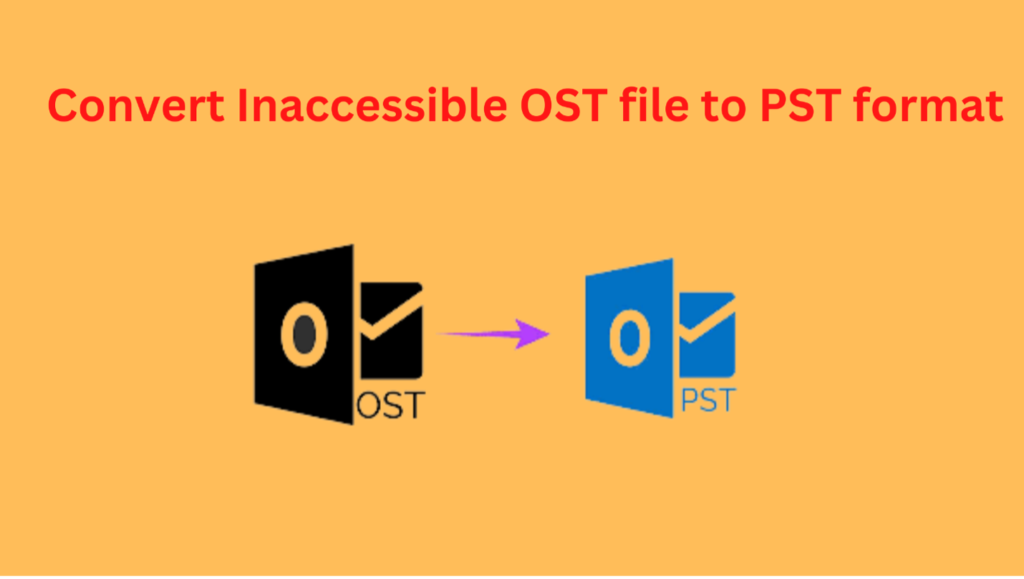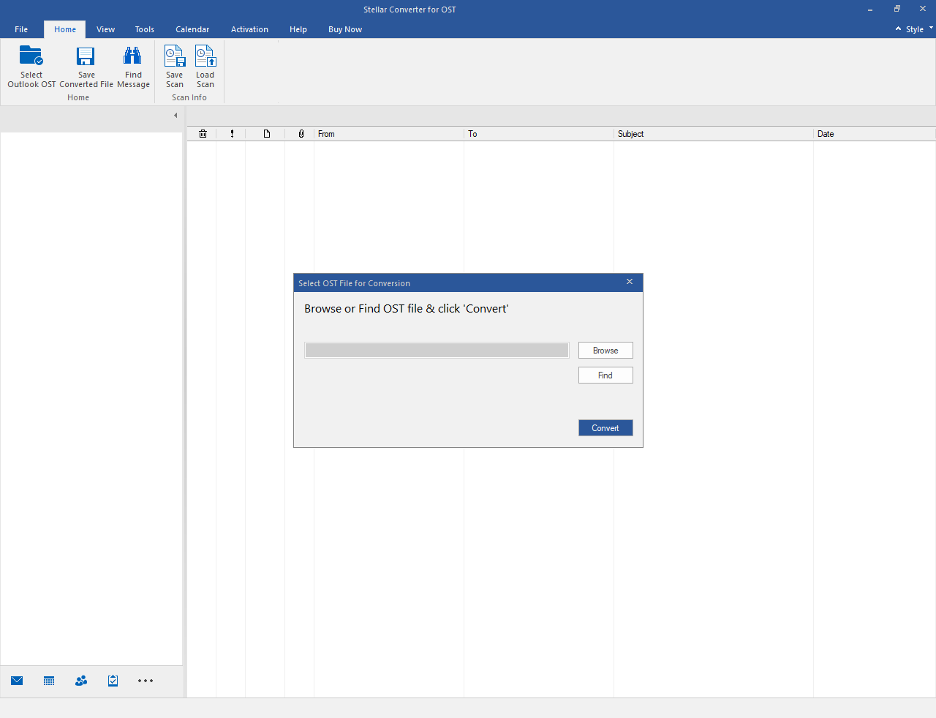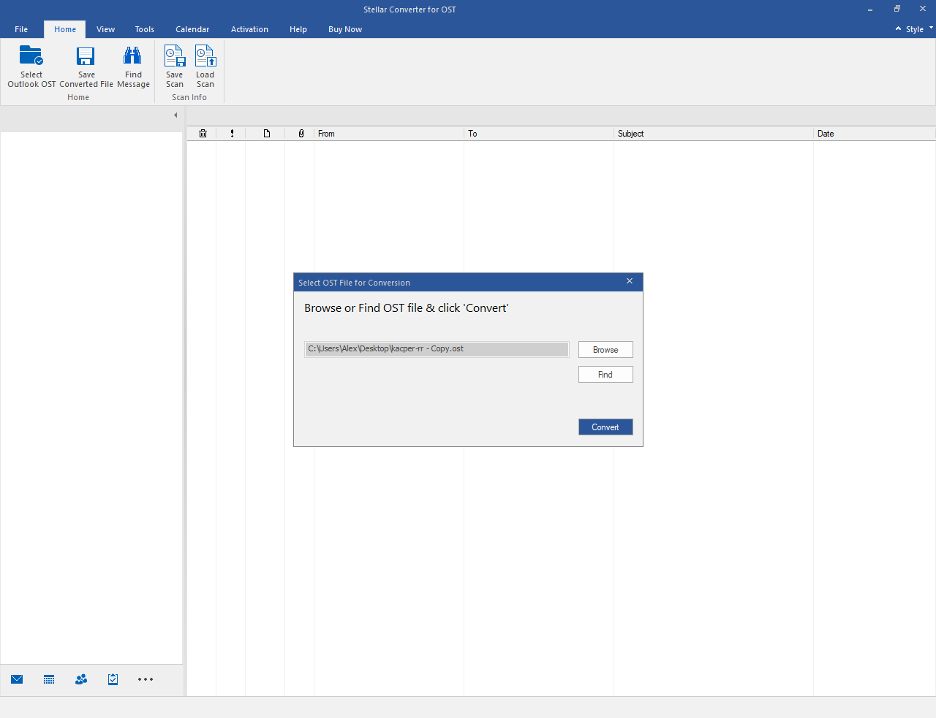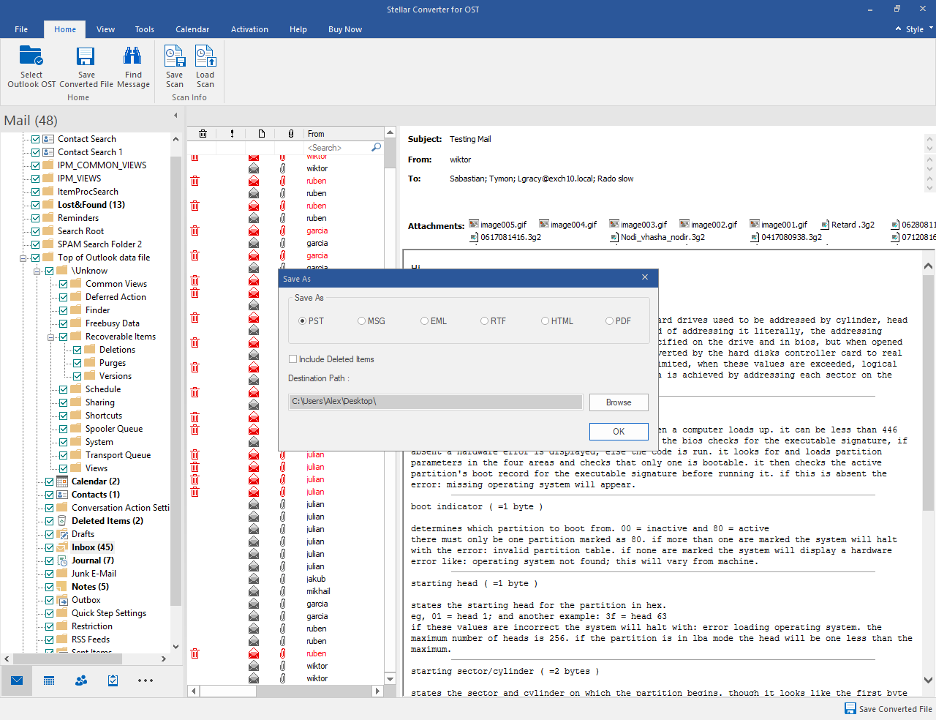How to convert an inaccessible OST file to PST format with little effort?
When I try to open an OST file, it keeps telling me the ‘OST file is not accessible.’ There can be multiple reasons behind this error message. If you are looking for a solution to this ideal case, today’s guide will offer you the easiest & fully secured way to convert an inaccessible OST file to PST format.
Reading the article further, you will explore:
- OST file & Exchange Server
- Top reasons behind the OST file is not accessible message
- Software solution for inaccessible OST files with little effort
- Advanced Features of the Stellar Converter for OST
- Closing thoughts
Additional Tips: Click here toopen OST file in Outlook 2019
What is the role of OST files in email communication?
Offline storage table or Offline Outlook data file (OST) allows Outlook profile users to work in communication. In order to maintain the simple flow of communication, organizations use MS Outlook. A unique ID is given to each user so that they can access the platform and manage all functions easily. The Outlook profile provides users with access to an OST file which is automatically generated by IMAP or Exchange Server to store mailboxes locally on their systems. However, many times Outlook users are not able to access the OST file and get this message, “OST file is not accessible.” There can be various reasons behind this message. Some an offline environment. Additionally, when Outlook internet connectivity is restored, the OST file gets synchronized with Exchange Server. This way, an offline copy of your mailbox is stored on your local computer. Email, contacts, calendar events, notes, tasks, and many other types of information may be stored in a file.
OST file not accessible error: What could be the cause?
Email is one of the most critical systems in an organization for effective and productive of the top reasons are listed below:
Inaccessible state of OST file: When user Outlook profile gains internet connectivity, the synchronization of OST file with Exchange Server begins. Many times, during this process the Offline Outlook data file ends up in an accessible state.
Outlook profile gets deleted: One of the most common reasons for OST files not opening is the Outlook user account gets deleted. As a result, no data is accessible, including OST files.
An attack of malware or another virus is common if your system does not have a secure environment, resulting in OST file corruption.
Hard Drive Failure & OST file size: As we all know, the defined limit of OST file is 50 GB. Sometimes, due to attachment or other reasons the file size exceeds 50 GB, resulting in an orphaned OST file. Also, it can be a case of hard drive failure.
With all of these scenarios, OST files are difficult to access. Now, let’s move on to the different approaches to overcome the scenario of OST file inaccessible.
Quick fix to the ‘OST file is not accessible’ error
A corrupted OST file can result in an inaccessible OST message. So, in order to overcome such a situation, we recommend you use Stellar Converter for OST. This excellent OST file recovery program can help you access OST file data when it becomes inaccessible and can be a lifesaver in the case of data loss. The OST converter restores orphan mailboxes from OST files and saves them in PST file format. It also provides freedom to users to save Offline Outlook data files to other useful file formats such as MSG, PDF, HTML, RTF, and EML file format.
Stepwise tutorial to convert inaccessible OST file to PST format
Download and install the free demo edition of Stellar Converter for OST and follow the given steps to convert OST files to PST format.
Firstly, click on the browse tab to choose the inaccessible OST file from your system.
Press the find button if you want the software to find the OST file location.
Once the OST file is uploaded to the software panel, click on the convert button to begin the scanning process.
Please note: The conversion process may take some time depending on the volume of the data. You can pause the scanning process by pressing the stop button.
Now, select the desired saving file format such as PST in the dialog box. Afterwards, choose a location on your system under the destination path to save the resultant files.
That’s all. You can easily open the inaccessible OST file.
The Top 5 Advanced Features of Stellar Converter for OST
Convert all types of corrupted OST file: Convert orphan, inaccessible, large size OST file to PST format in a few steps with 100% precision. Using the help of Stellar Converter for OST, you can access inaccessible OST file mailbox data such as emails, contacts, notes, and tasks. You can also save them as Outlook PST files.
Conversion of multiple encrypted OST files: The program technician edition provides batch conversion. This feature helps users convert multiple inaccessible OST files to PST at once. It also helps users find the location of encrypted OST files on the system.
20 inaccessible OST files conversion for free: The software allows users to convert the first 20 inaccessible OST files per folder for free. Users have the freedom to save them in PST format. In order to restore orphaned OST files in other file formats such as PDF, MSG, RTF, EML, and HTML format.
Save restored OST files to Outlook & Exchange directly: The Stellar Converter for OST technician solution for inaccessible OST files provides a straightforward method to import Offline Outlook data files in Exchange Server & Microsoft 365.
Compatibility with multiple Outlook editions: Using the simplified solution, users can convert OST files from various Outlook versions such as 2021, 2019, 2016, 2013, 2010, 2007, and more, to PST file format. This way, you can restore inaccessible OST files for any Outlook version.
Summary
We hope the solution we provided to convert inaccessible OST files to PST will help you overcome the ideal case. At present, thousands of organizations of all sizes use Outlook to manage effective communication among people. Knowing the simplified solution for restoring an OST file will save you from difficult situations.



